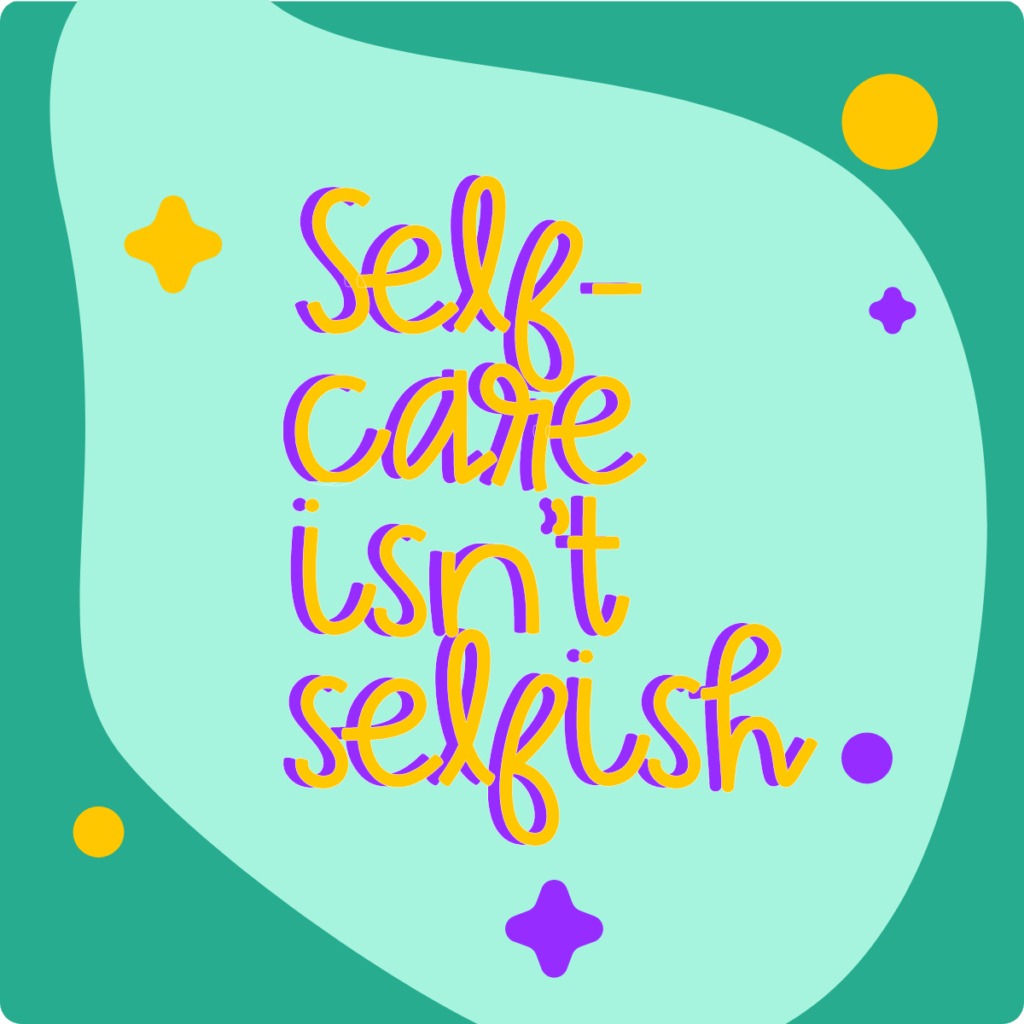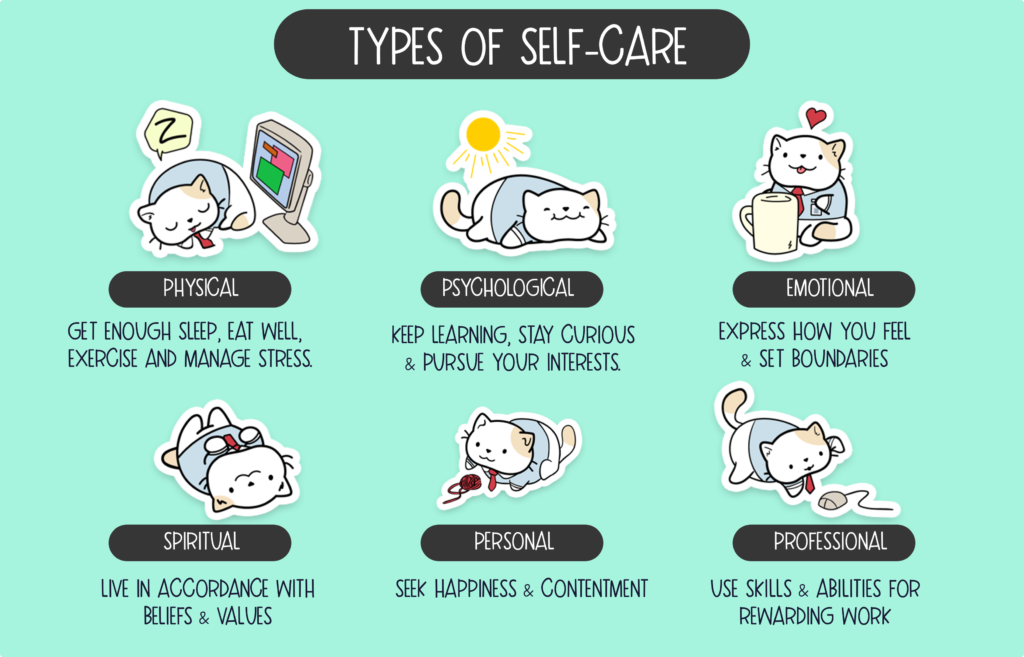Everywhere you go these days, there is talk about self-care. There are messages on social media, magazines and your email inbox. Self-care is big business. It is used to sell products and services. Is self-care just a buzzword to get us to spend money?
What is self-care? With is so much hype around it, it can seem like an odd question. Self-care is more than spa days and kale smoothies, but what does it actually mean?
Below are some ideas about self-care. Arrange the missing words correctly to complete each sentence.
Self-care is the practice of caring for ourselves so we can enjoy greater health, cope with illness or disability and manage the up’s and down’s of daily living. It is a range of activities done regularly to promote physical, emotional, mental and spiritual well-being.
In a TED Talk, Jessica Brubaker explains that self-care is a tool and it is also our responsibility. Brubaker says, as children, our families and other trusted adults were responsible for taking care of us. They helped us learn about ourselves and believe that we are good enough. They nurtured us by tending to our physical and emotional needs. They kept us safe and protected from things that might cause harm.
As adults, the job of caring for ourselves is up to us. We don’t always do a good job with self-care because there are things that get in the way. For example, we may not believe that we deserve our own time and attention. Even if we have healthy self-esteem, we often put our own needs last.
Making self-care a priority does not make you selfish. Looking after your own needs does not mean you are being selfish. No one has unlimited capacity for selflessness. We need to rest and recharge on a regular basis. What might it feel like to let go of guilt or shame around meeting your own needs? How could this change in perspective make a difference for you right now?
Self-care isn’t selfish. It is our responsibility to affirm, nurture and set boundaries for ourselves.
- Affirm – recognize our worth through kindness and self-compassion.
- Nurture – making sure to get enough sleep, eat well, exercise regularly and find ways to manage stress.
- Set boundaries – use self-awareness to understand our needs, preferences and limits.

How can you make time for self-care?
Even small moments in the day can be used for self-care. Taking a moment to check-in with yourself can restore calm and focus. We know from research that taking breaks can improve focus and attention. When we are stressed or activated, the signals in the thinking part of our brain are less active. More activity is focused in regions of that brain that are focused on survival.
Mini breaks can be an effective way to signal the brain that we are safe and restore function to the thinking brain.
What can you do in two minutes? You can:
- Smile
- Look out the window
- Stand up and stretch
- Drink water
- Cuddle a pet
- Give (or receive) a hug
- Sip herbal tea
- Read an inspiring quote
- Recite an affirmation
What else can you do for self-care?
We can sometimes think about self-care in a limiting way. We may associate self-care only with taking care of the physical body. Sleep, bubble baths and massages can be a part of self-care, but there is much more to it than that. Self-care practices focus on all dimensions of the self. Self-care can be any activity that tends to your physical, emotional, mental or spiritual well-being.

Practicing self-care helps protect you from the negative effects of stress and helps you focus energy toward what is truly important in your life. For example, a healthy self-care practice will include activities that maintain health with nutritious food and regular exercise, help you relax and manage stress and promote a positive mental attitude.
Dimensions of Well-Being
Overall well-being is made up of several different components that work together to determine the quality of your life.
Physical well-being: getting enough sleep, balanced nutrition, exercise and managing stress
Psychological well-being: staying curious, learning new things, reading, joining clubs, enhancing intellectual interests.
Emotional well-being: Understanding and expressing emotions, recognizing negative behaviour and creating healthy habits, setting and maintaining personal boundaries.
Spiritual well-being: understanding the beliefs and values that shape who you are and guide your life.
Personal well-being: enjoying health and happiness and a feeling generally satisfied with your life’s direction.
Professional well-being: applying your interests, skills and abilities to work that is challenging and rewarding.
You might like
A video by Indigenous Youth Wellness explores dimensions of self-care from an Indigenous perspective.
Watch ABC’s of Self-Care
References
Monk, L. (n.d.). 4 Key Dimensions of Self-Care. Crisis and Trauma Resource Institute. https://ca.ctrinstitute.com/blog/4-key-dimensions-self-care/
Saakvitne, K. W., Gamble, S., Pearlman, L. A., & Lev, B. T. (2000). Risking connection: A training curriculum for working with survivors of childhood abuse.
